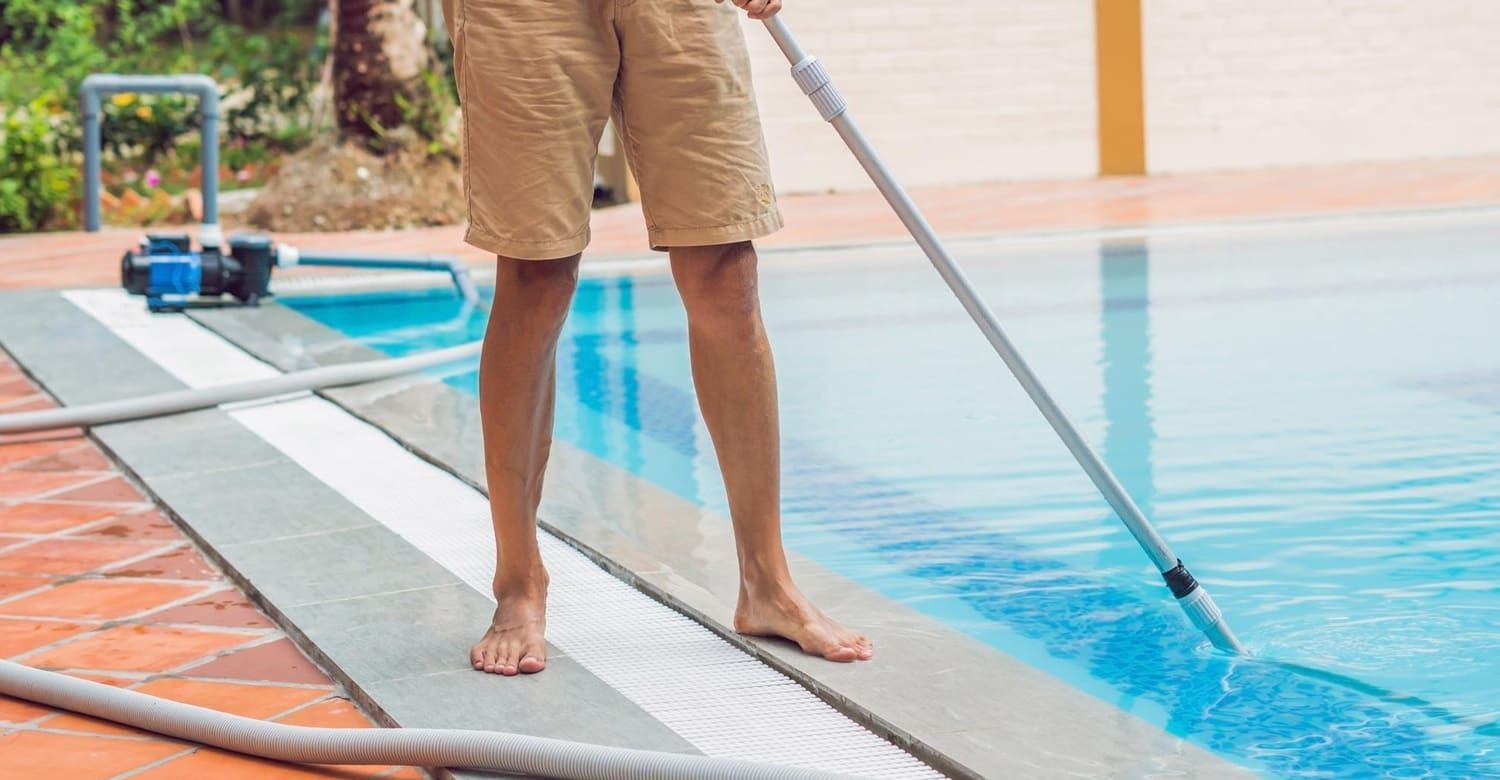Essential Steps for a Pool Cleaning Schedule
A well-maintained pool not only looks inviting but also ensures the safety and health of swimmers. Regular cleaning prevents the growth of algae, keeps the water balanced, and prolongs the life of your pool equipment. By adhering to a pool cleaning schedule, you can avoid costly repairs and enjoy a clean, clear pool.
Moreover, a consistent cleaning routine helps you catch potential issues early, such as equipment malfunctions or water chemistry imbalances, which can otherwise escalate into expensive problems. A routine also fosters a sense of discipline and responsibility, creating a more enjoyable and stress-free swimming experience. Ultimately, a well-executed pool maintenance schedule enhances the overall value and enjoyment of your property.

Daily Pool Maintenance Tasks
Skim the Surface
Leaves, insects, and debris can quickly accumulate on the surface of your pool. Use a pool skimmer daily to remove these items. This simple task helps prevent debris from sinking to the bottom and keeps your pool looking pristine. Regular skimming also reduces the workload on your pool's filtration system, allowing it to operate more efficiently.
In addition to maintaining aesthetics, daily skimming minimizes the organic load that contributes to water contamination. By reducing debris, you help maintain balanced water chemistry, which is crucial for preventing algae blooms and bacterial growth. This proactive approach ensures your pool is always inviting for a refreshing swim.
Check Water Levels
The water level in your pool should be maintained at the midpoint of your pool skimmer or tile line. If the water level is too low, your pump might run dry, causing damage. If too high, the skimmer won't work efficiently. Refill or drain your pool as needed to maintain proper water levels.
Monitoring water levels daily also helps in identifying potential leaks early, which might otherwise lead to significant water loss and damage to the pool's structure. Moreover, maintaining proper water levels ensures that your pool equipment operates at peak efficiency, reducing the likelihood of mechanical issues and extending the life of your investment.
Weekly Pool Maintenance Tasks
Vacuum the Pool
Vacuuming your pool weekly is crucial to remove dirt and debris that settle on the floor. Depending on your pool type, you can use a manual vacuum or an automatic cleaner. Regular vacuuming ensures your pool remains clean and reduces strain on your filtration system.
A thorough weekly vacuum not only maintains cleanliness but also helps in detecting any surface damage, such as cracks or tears, allowing for timely repairs. This proactive maintenance prevents minor issues from escalating into more serious, costly repairs, ensuring a safe swimming environment.
Brush the Walls and Tile
Algae and grime can cling to the walls and tiles of your pool. Use a brush suitable for your pool's surface to scrub the walls and tiles at least once a week. This will prevent algae buildup and keep your pool looking fresh. Regular brushing also enhances water circulation, which is essential for maintaining balanced water chemistry.
In addition to aesthetics, brushing removes biofilm, a thin, sticky layer where bacteria and algae thrive, making it difficult for chlorine to sanitize the water effectively. By eliminating biofilm, you enhance the overall efficiency of your pool's sanitation system, ensuring a healthier swimming environment.
Test and Balance Water Chemistry
Pool water chemistry is vital for maintaining clean and safe swimming conditions. Test the water weekly to ensure the pH, alkalinity, and chlorine levels are within the recommended ranges. Adjust your chemicals accordingly:
- pH Levels: Should be between 7.2 and 7.6. Adjust with pH increaser or decreaser as needed.
- Alkalinity: Maintain between 80-120 ppm. Use alkalinity increaser to raise levels.
- Chlorine: Keep between 1.0 and 3.0 ppm for effective sanitation.
Regular testing and balancing of water chemistry prevent skin and eye irritation, ensuring a comfortable swimming experience. It also protects your pool equipment from corrosion or scaling, thus extending its lifespan and functionality. By keeping a log of your test results, you can identify trends and make informed decisions about your pool maintenance.
Monthly Pool Maintenance Tasks
Clean the Pool Filter
Whether you have a sand, cartridge, or diatomaceous earth (DE) filter, cleaning it monthly is essential. A clean filter ensures efficient water circulation and filtration, helping keep your pool water clear. Follow the manufacturer's instructions for cleaning your specific filter type.
Regular filter cleaning not only maintains water clarity but also prevents pressure build-up that can strain your pool's system, leading to costly repairs. By keeping your filter in optimal condition, you ensure that your pool's circulation system works effectively, maintaining the overall health of your pool.
Shock the Pool
Even with regular chlorine use, your pool needs a chlorine boost known as "shocking" to remove chloramines and kill bacteria. Shocking your pool monthly keeps the water crystal clear and safe for swimming. Always follow the shock product's instructions for best results.
Monthly shocking oxidizes organic contaminants, preventing them from affecting water clarity and quality. This proactive approach to maintenance ensures that your pool water remains inviting and free from unpleasant odors, contributing to a more enjoyable swimming experience.

Seasonal Pool Maintenance Tasks
Inspect Pool Equipment
Regular inspections of your pool equipment can prevent unexpected breakdowns. Check the pump, heater, and filter for any signs of wear or damage. Ensure all connections and seals are tight and functioning properly.
By inspecting your equipment seasonally, you can address minor wear and tear before it escalates into significant issues. This preventive maintenance not only saves you money on potential repairs but also extends the life of your pool equipment, maximizing your investment.
Winterize Your Pool
If you live in a region with cold winters, properly winterizing your pool is essential. This process includes lowering the water level, adding winter chemicals, and covering the pool to protect it from debris and freezing temperatures. Winterizing your pool extends its lifespan and makes spring opening easier.
Proper winterization prevents freeze damage, which can lead to costly repairs and replacements. By preparing your pool for winter, you ensure a smoother transition to the swimming season, preserving the quality and functionality of your pool.
Creating Your Ultimate Pool Cleaning Checklist
To keep your pool maintenance on track, create a checklist based on the tasks outlined above. A checklist ensures you complete each task on schedule and helps avoid any steps that might be overlooked. Here's a sample checklist to get you started:
Daily Tasks:
- Skim the pool surface
- Check water levels
Weekly Tasks:
- Vacuum the pool
- Brush walls and tiles
- Test and balance water chemistry
Monthly Tasks:
- Clean the pool filter
- Shock the pool
Seasonal Tasks:
- Inspect pool equipment
- Winterize the pool (if applicable)
A well-structured checklist not only organizes your pool maintenance tasks but also provides a sense of accomplishment as you check off each completed task. It serves as a visual reminder of your commitment to maintaining a healthy and beautiful pool environment.
Tips for Maintaining a Sparkling Pool
- Consistent Maintenance: Stick to your schedule. Consistency is key to maintaining a clean pool.
- Use Quality Products: Invest in high-quality pool cleaning supplies and chemicals for the best results.
- Keep a Log: Record maintenance activities, including water test results and chemical adjustments, to track your pool's condition over time.
- Professional Help: If pool maintenance becomes overwhelming, consider hiring a professional pool service to handle the more complex tasks.
Consistency in maintenance routines ensures that your pool remains in top condition, preventing small issues from becoming major problems. Using quality products not only improves cleaning efficiency but also reduces the frequency of maintenance required. Keeping a detailed log allows you to spot trends and make informed decisions, enhancing the effectiveness of your pool care efforts. For complex maintenance tasks, seeking professional help can provide peace of mind, ensuring your pool stays in excellent condition without unnecessary stress.
At Oceancare Products Store, we offer the best Pool Tile Cleaners to help keep your pool surfaces spotless and protected from buildup and stains.
By following these essential steps for a pool cleaning schedule, you can ensure your pool remains inviting, safe, and sparkling clean. Enjoy the benefits of a well-maintained pool all season long!
Contact us today if you have any questions or need expert pool cleaning solutions!
All Rights Reserved | Oceancare Products Store


